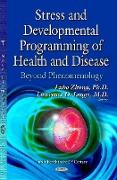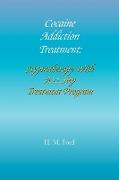Stress & Developmental Programming of Health & Disease
BücherAngebote / Angebote:
One of the most provocative recent findings in modern medicine is that perinatal stress may have a subtle or drastic impact on tissue/organ ontogeny, structure, and function, altering the vulnerability or resiliency to challenges and diseases later in life. A wealth of evidence indicates that stress and adverse environmental milieu during early development is closely associated with increased risks of the genesis of hypertension, coronary artery disease, insulin resistance, type 2 diabetes, central obesity, hyperlipidemia, and other neurobehavioral, neuropsychological and neuropsychiatric disorders in adulthood. The concept of "Developmental Programming of Health and Disease" or "Foetal Origins of Adult Disease" has been developed to elucidate the links between stress, early development, and risks of disease later in life. Stress is an internal response to stimuli or pressures that challenge or disrupt an organism's homeostasis in a changing environment. Adverse environmental signals that influence the development cause foetal stress. Such adverse signals can be transmitted from the mother to the foetus, impacting specific vulnerable tissues in their sensitive developmental stage, modulating normal development trajectory, remodelling their structure and function and reprogramming the resiliency or susceptibility to diseases in postnatal life. Such programming may be determined by multiple factors including gestational age, duration and mode of exposure and nature of the stressor, and these processes are tissue/organ specific. Genetic traits, epigenetic modifications and central stress mediators such as dopamine, glucocorticoids, and other transmitters may underpin such phenotypic plasticity. This volume provides broad and up-to-date information in the recent advancement of our knowledge in the basic science of Developmental Programming of Health and Disease. Each Chapter is written by leading experts in the field, providing the highest academic level for readers including basic, clinical, and translational scientists, paediatricians, maternal-foetal medicine specialists, physiologists, environmental biologists, biostatisticians, sociologists, behavioural scientists, health economists, health informatics experts, geneticists, microbiologists, epidemiologists, medical students, university undergraduate students, and graduate students.
Folgt in ca. 10 Arbeitstagen




